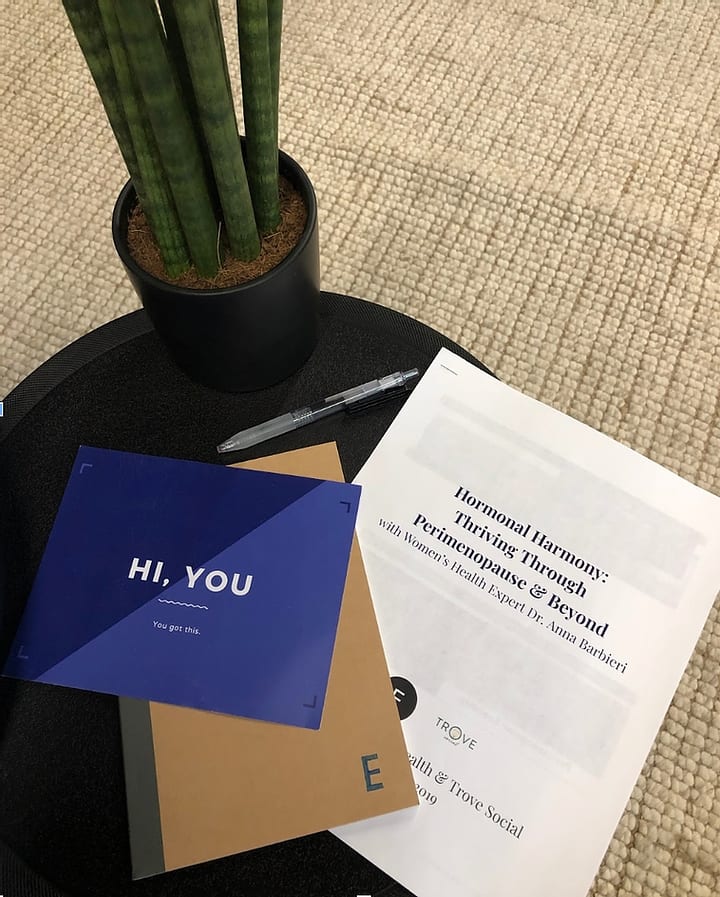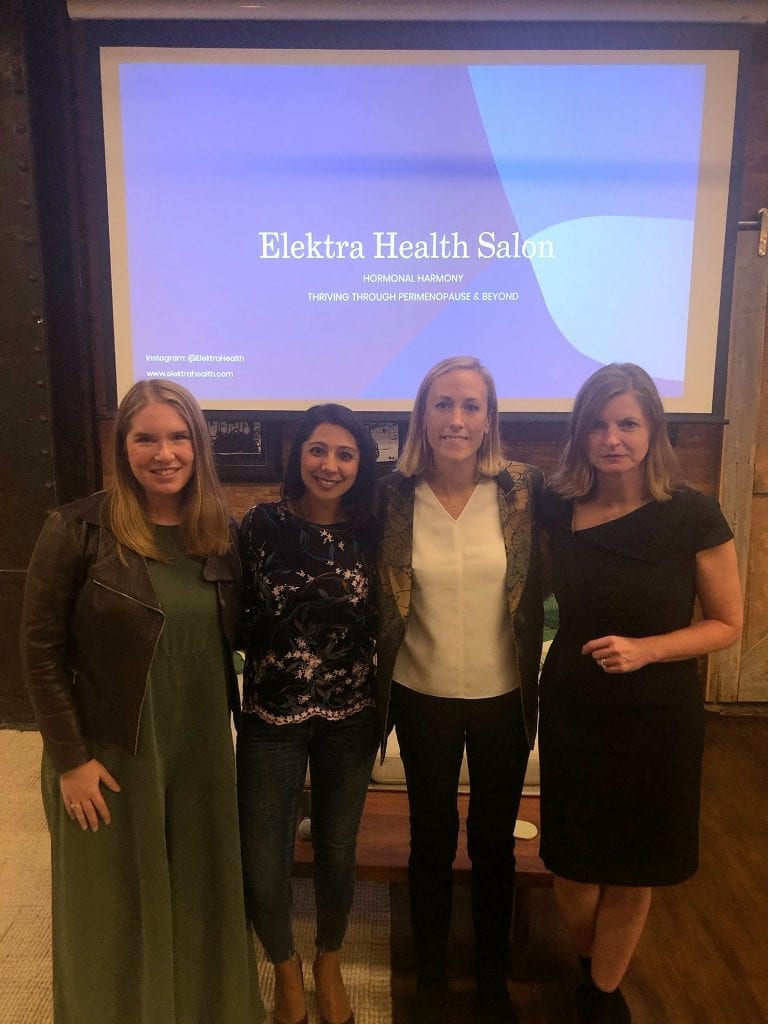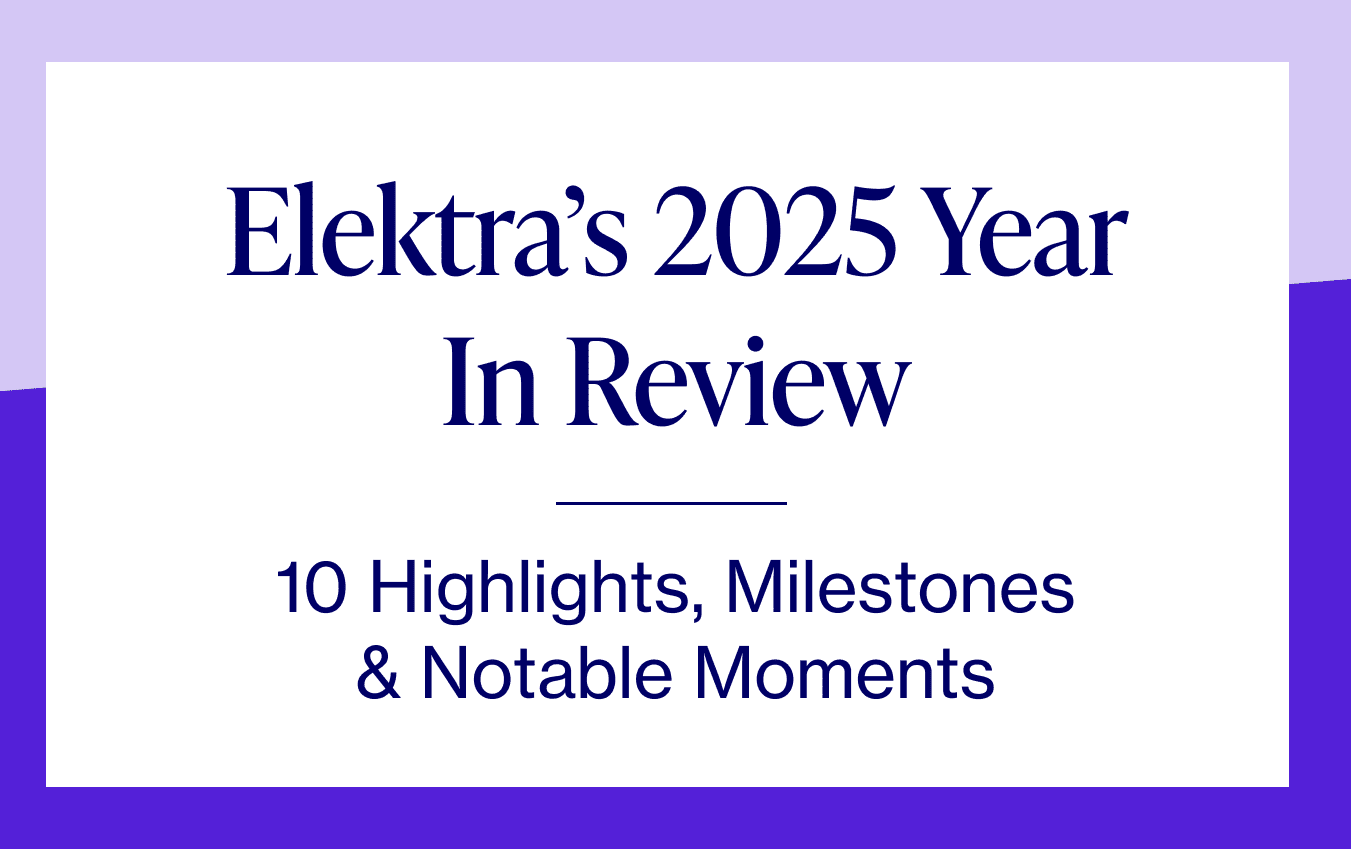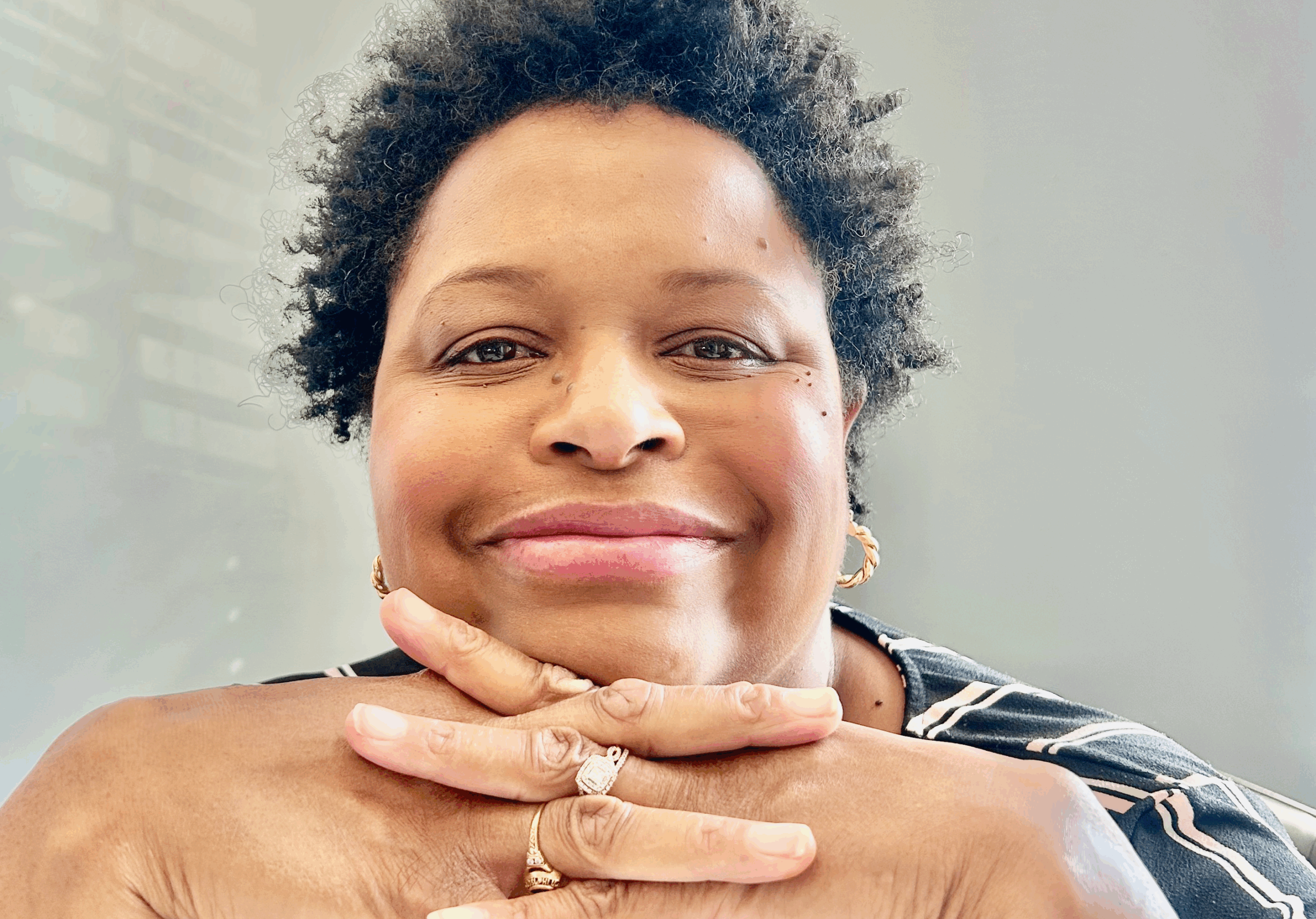
Published on Oct 14, 2019
Last modified on Mar 03, 2021
5 Pro Tips on Hormonal Harmony from Women’s Health Expert Dr. Anna Barbieri
4 min read

Ever forget to ask the most important question at your annual wellness exam, felt confused by terms your doctor uses or, worst of all, had your symptoms flat out dismissed by your doctor? We’ve been there too.
Elektra’s mission is to provide women greater access to and education from world-class hormonal health experts. Which is why we were thrilled to team up with NYC-based social club Trove Social and Elektra’s medical expert Dr. Anna Barbieri (Assistant Clinical Professor of OB/GYN, Mount Mt. Sinai & North American Menopause Society certified practitioner) for our October Elektra Salon: Hormonal Harmony: Thriving in Perimenopause and Beyond.
Dr. Barbieri is a firm believer that all women can live well throughout perimenopause and menopause. In order to smash this perimenopause and menopause taboo, however, we need to support one another and correct the conflicting information out there.
Five key learnings from Dr. Anna Barbieri:
1) Terminology Matters: What’s the difference between HRT, HT, and Hormone Balancing?
 Dr. Barbieri kicks off the salon with Elektra community members
Dr. Barbieri kicks off the salon with Elektra community members
The terms hormone replacement therapy (HRT) and hormone therapy (HT) technically mean the same thing, i.e. the use of hormones to regulate and treat menopausal symptoms. Historically, most doctors, women and even the media use the term HRT; increasingly, however, the nations leading experts are recommending that we abandon “HRT” in favor of “HT”.
Why is it better? Experts argue that referring to treatment as the addition of hormones rather than replacing something that’s been lost is a more positive representation for women. And in case you’re wondering what hormones are involved in “HT”, think mostly estrogen and progesterone. Dosages and forms vary, but all treatments are either estrogen alone or a combination of both estrogen and progesterone.
Oh, and if you’ve heard a lot about hormone balancing, this can mean different things. For example using weight loss to treat PCOS is “hormone balancing”. When talking to perimenopause and menopause patients, Dr. Barbieri uses the term hormone balancing as an umbrella term for nutrition, lifestyle, supplements, and yes, HT. Just remember “hormone balancing” is NOT just HT.
2) Why do my doctors give me different information and answers when I ask about hormone testing?
If you’ve asked your doctor for hormone tests as a way to learn about your perimenopause/menopause status but s/he has turned you down, there may actually be a good reason. Until you hit menopause, the range considered “normal” for a woman’s hormone levels is actually quite large. This is because a woman’s hormone levels change frequently throughout her cycle, and even over the course of a single day. To make things more complicated, each woman is unique, which makes reading test results difficult except in the event of extreme levels. It’s not that your doctor doesn’t want more information, it’s that these tests may not be as useful as we’d all like them to be.

Of course, that doesn’t mean that tests aren’t useful. Dr. Barbieri frequently incorporate tests into her assessments, including thyroid levels as well as certain nutritional and metabolic markers such as vitamin D, B12, and diabetes screening when appropriate. Not everyone needs these, especially if the result will not help with diagnosis or choice of therapy. For Dr. Barbieri, the key is to focus on the necessary tests, while also being sensitive to costs to the individual and the broader healthcare system.
But remember: if you have a serious feeling that something isn’t right and your doctor refuses to investigate further, it’s time to find a new provider. See NAMS’ find a practitioner tool to locate a NAMS-certified menopause specialist in your area.
3) A single glass of wine can impact sleep by up to 40%
Studies show that alcohol intake is increasing for women of menopausal age. While Dr. Barbieri does not necessarily advocate for complete abstinence, women should know that for some, even one glass of wine can disrupt sleep up to 40%. Alcohol is also high in sugar and calories and has been associated with an increased risk of breast cancer. Is there something else you can do to unwind?
At Elektra, we recommend meditation, tea and mindful body scans to enter relaxation mode after a long day. Dr. Barbieri also urges her patients to leave their phones outside the bedroom. Smartphones emit blue light, which seriously disrupts melatonin levels needed for sleep.

The Elektra Health Team
4) Magnesium is a great addition to your sleep toolbox.
Sleep is critical but that blissful eight hour rest often times becomes a distant memory for women entering perimenopause. To get back on track, Dr. Barbieri recommends incorporating magnesium into your pre-bedtime routine. Not only is it safe and non-addictive, but some women find it can ease migraines and cramps. Pro Tip: magnesium citrate can increase bowel movements – great if you’re frequently constipated, but if you prefer a less gut-forward approach, opt for magnesium glycinate.
5) Will being on long-term birth control impact my perimenopause or menopause symptoms?
We definitely need more studies on this before giving a definitive answer. Some women who have been on long-term birth control – Dr. Barbieri has seen patients on the pill for 30+ years – there may be some lingering hormonal suppression, meaning that it may take longer for hormone levels to adjust. But, while birth control may cause symptoms such as low libido or vaginal dryness, for the most part, your perimenopause and menopausal transition will not be delayed from being on hormonal contraception.
Beyond the medical advice, we loved Dr. Barbieri’s final words of wisdom to the Elektra community:
“These can be the most productive years of your life and the beginning of the next chapter. Remember, we have an amazing opportunity to create — let’s stay full of hope and possibility.”
To attend an Elektra Salon event in the future and for more taboo-smashing information on living your best life beyond fertility, sign up for the Elektra Digest!
Note: Remember, there is no one-size-fits-all model – what works for your best friend or sister may not be right for you. Remember to speak with a medical expert before experimenting with a new routine.


